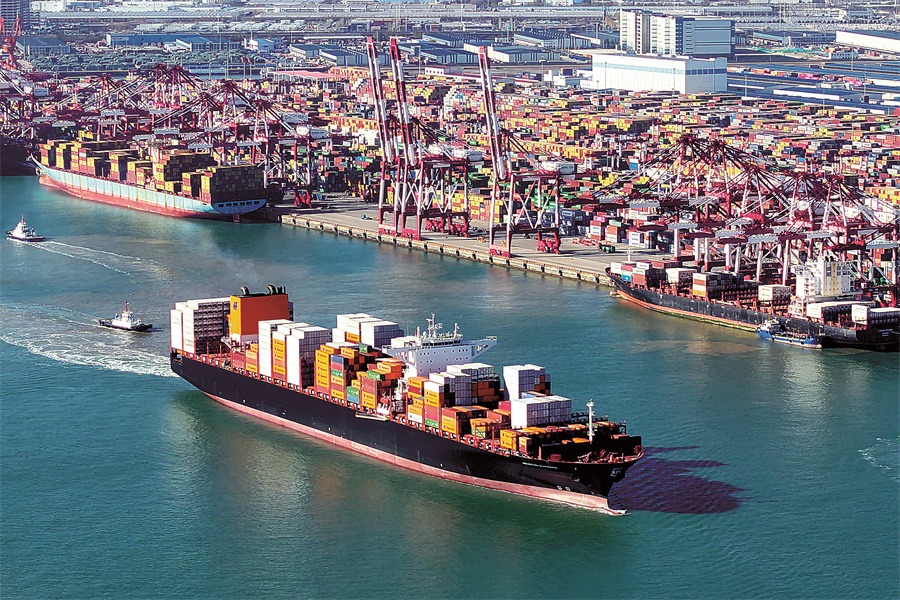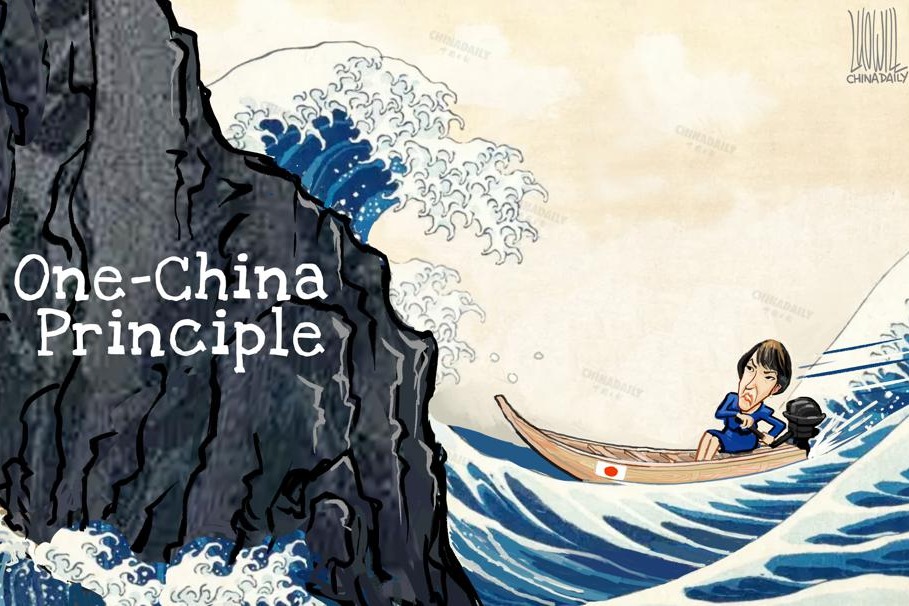A re-imagined partnership
If Trump's re-election makes the EU and China work toward shared goals, it could lead to a stronger, more resilient global system that benefits humanity


Editor's note: The world has undergone many changes and shocks in recent years. Enhanced dialogue between scholars from China and overseas is needed to build mutual understanding on many problems the world faces. For this purpose, the China Watch Institute of China Daily and the National Institute for Global Strategy, Chinese Academy of Social Sciences, jointly present this special column: The Global Strategic Dialogue, in which experts from China and abroad will offer insightful views, analysis and fresh perspectives on long-term strategic issues of global importance.
The election of Donald Trump as the 47th president of the United States brings significant shifts to a world already grappling with economic, political, and environmental challenges. As one of the world's most powerful political unions, the European Union faces an array of internal and external difficulties, from economic strain within its member states to the challenges of handling major global issues such as security, climate change and international trade.
Under a new Trump administration, the EU will find itself in an increasingly difficult position, impacted not only by tougher US policies but also by potential marginalization on the global stage. Trump's direct interventions in international matters — especially concerning trade and security — could weaken the EU's influence in key areas.
It may become crucial for the EU to re-evaluate its strategies, including strengthening relations with China, to safeguard its autonomy and maintain a voice in shaping global governance.
One of the first ways the Trump administration can affect Europe is through hardened US-EU trade policies. Trump's previous administration was marked by a strong emphasis on "America First" policies, which often translated into protectionist trade measures designed to prioritize US businesses and workers. Upon his return to the White House, we can expect a similar stance, with stricter policies that might limit the EU's access to US markets and potentially impose tariffs on European goods. This could strain economic ties and create additional barriers for the EU, which is already struggling to address economic disparities and maintain cohesiveness among its members.
In addition to trade, Trump's approach to foreign policy, particularly regarding the Ukraine crisis, could further strain EU-US relations. During his first presidency, Trump was often criticized for his ambivalent stance on Russia, and it is possible that his return could bring a shift in the US's stance on the Ukraine crisis. If Trump were to adopt a more hands-on approach without regard for European concerns, it could weaken the EU's position and hinder its ability to respond to security threats in its own neighborhood. Many European leaders would likely see this as a disregard for EU sovereignty and priorities, potentially leading to tensions between the two allies. In the face of these challenges, the EU risks being sidelined in critical international discussions if it does not take steps to protect and assert its interests independently.
In this context, EU-China relations become increasingly significant. While relations between the EU and China are complex and occasionally strained, they also represent an opportunity for the EU to expand its influence and promote a more multilateral approach to global governance. Given the likely reemergence of a unilateralist US foreign policy under Trump, a strengthened partnership with China could provide the EU with a counterbalance, enabling it to pursue policies that align with its own values and objectives rather than those imposed from abroad. Far from opting for a decoupling from China, the EU might benefit from deepening its cooperation with China, particularly in areas of shared concern such as trade, climate change and technological innovation.
One key area where EU-China cooperation could have a global impact is in the defense of multilateralism. Trump's previous administration frequently criticized and withdrew from international agreements and organizations, favoring a more insular approach. Should this happen again, the EU and China would have the opportunity to fill that vacuum, advocating for a rules-based international order and pushing for reform within global institutions such as the United Nations. By doing so, both powers could help sustain a multilateral approach to governance that balances diverse interests.
Climate change is another area where collaboration between the EU and China could prove essential. Both entities have committed to ambitious climate targets, and their cooperation could drive progress even if the US adopts a more isolationist stance. By sharing technology, pooling resources, and coordinating climate policies, the EU and China could set the stage for a global response to climate change that other countries might be more inclined to follow. In this way, their partnership could become a model for effective climate diplomacy, encouraging other countries, including the US, to eventually return to the table.
Nonetheless, it is essential to acknowledge that EU-China relations come with their own set of challenges. Issues related to intellectual property, market access, and cybersecurity have long complicated their relationship. However, these challenges are not insurmountable. They can be addressed through a pragmatic approach that emphasizes negotiation, transparency, and diplomacy. If the EU can foster a constructive dialogue with China on these issues, it can lay the groundwork for a more stable and mutually beneficial partnership that could endure even as other alliances shift.
The EU's strength, in this regard, will depend on its ability to formulate an autonomous policy toward Beijing — one that is neither overly dependent on the US nor solely reactive to Chinese policy. Developing such an independent stance could position the EU as a bridge between the East and the West, capable of mediating between the US and China and fostering a more cooperative international environment. This would not only benefit the EU-China relationship but also ease tensions between China and the West as a whole, creating a foundation for a more balanced global order.
In the long term, such a strategy could benefit the entire international community, including the US. Global leadership in today's world cannot be derived from a fantasy of unilateralism; it requires a constructive effort to build an inclusive and fair global governance system. A re-imagined EU-China partnership, in which both sides work toward shared goals while respecting each other's distinct priorities, could exemplify the kind of global cooperation that is necessary to tackle the world's most pressing challenges. If Trump's re-election prompts the EU to adopt this approach, it could ultimately lead to a stronger, more resilient global system — one that balances the interests of multiple powers and benefits humanity as a whole.

The author is the founder of the China-Europe-America Global Initiative. The author contributed this article to China Watch, a think tank powered by China Daily. The views do not necessarily reflect those of China Daily.
Contact the editor at editor@chinawatch.cn.



































